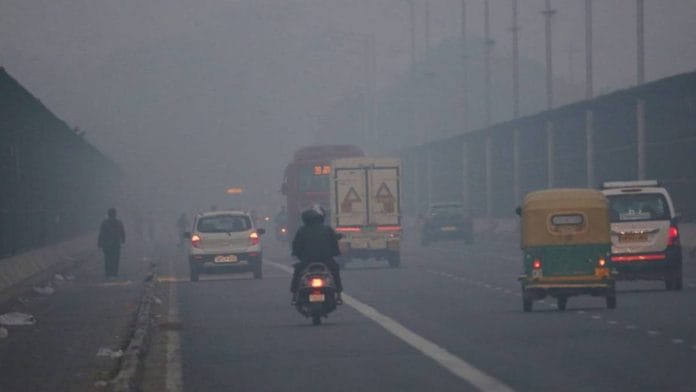Thanks to the seedy concoction of traffic pollution from cars, stubble burning in Punjab, after-effects of Diwali firecrackers and construction work across the city, air purifiers in the last five years have gone from a luxury to a necessity in Delhi. But air purifiers are not only expensive, especially from brands like Dyson, but also high on maintenance.
On top of that, air purifiers aren’t there in most vehicles. If your vehicle is more than four years old, you’ll be hard-pressed to find them in public spaces.
That’s why so many people in the last couple of years during the pandemic migrated from Delhi to hill stations or coastal cities like Goa. What’s the solution for people who cannot leave Delhi? It certainly is not to breathe the poisonous air.
What air purifiers to choose from?
There are many options when one talks about air purifiers. But when one is looking for affordable options, there is no escaping Xiaomi’s products, which is the market leader in air purification products since 2016. Its smart air purifiers are cheap—not just in terms of buying cost but also for maintenance for things like the HEPA filter.
They are smart as they can be connected to your smartphone remotely over Wi-Fi. They provide a multitude of information about the state of the air, the purification functions and the health of the filters. I recommend the Xiaomi Smart Air Purifier 3 out of all the air purifiers Xiaomi sells.
A more straightforward solution can be had from the local brand Kurin systems — Venti. Unlike the Xiaomi products, this is not a smart air purification system with things like smartphone connectivity. It works effectively with an accurate AQI sensor. It is also cheap to maintain, provided the Kurin Systems have enough stock of the filters in its inventory.
Like I mentioned in my previous column on Diwali shopping guide, Blue Air models are one of the best in business.
They can clean large rooms seamlessly and are generally effective even if people are smoking cigarettes in the room, something that I highly advise against. One of the better models is the Pure Blue 121, which can clean big rooms with ease.
For people who are looking for a combination of brand cachet, effectiveness and unique industrial design, they should go for Dyson’s products. Their models also include the ability to have heating and cooling, and even a humidifier baked into the air purification system. In particular, the Dyson Hot+ Cool could be handy as winter is upon us.
Philips is a long favourite of many people when it comes to air purifiers, but in my books, its products are not on the level of Dyson and BlueAir in terms of cleansing capabilities. Honeywell also has solid air purification products, which can do the job for some. Sharp’s products are excellent too as their ionising technology is cutting edge, which helps remove allergens effectively.
Also read: Listen: Looking for noise cancelling earbuds? The serious ones will cost at least Rs 5,000
What to do when you’re commuting?
Most modern cars are now standardising air purification systems — be it Hyundai, Kia, MG Motors or the luxury car brands like Mercedes Benz and BMW, but what if you bought a car before the pandemic?
In that case, you will need a portable air purification system, which can be charged from the cigarette lighter socket or USB. O2 and Honeywell have great products for the same, but the best solution is a personal purifier like the Kurin System Atom.
It is an air purifier face mask, which looks akin to Darth Vadar’s mask from Star Wars. It provides one sure-shot way of getting pure air as it is right on your face. It is slightly bulky but now it even supports USB type C charging and its filter can be manually replaced as well.
It retains charge for around four hours, which makes it perfect for commuting via public transport, even jogging in the smog and flights where apart from recycled air, there is a risk of getting Covid as well. It is the one thing that can be used anywhere and all the time, the fit will be slightly uncomfortable, so an adjustment will be imperative.
Also read: How Noida-based SPPL is the brains and brawn behind Thomson, Kodak, and Blaupunkt Smart TVs
How to extend the life of filters?
One should always have multiple filters — at least two filters apart from the one pre-installed on the air purification system. This way, you can keep switching between filters each day and it will extend the life of all the filters as they have a performance curve. After getting dirty, the effectiveness of the filters deteriorates quite rapidly, that’s why it is best to rotate them so that they don’t reach the degradation cliff.
To further manage filters better, it is best to clean the filters and the innards of the air purifier at least three times a week. This will make sure the effect is maintained. It is also best to have a separate AQI sensor from the air purification system as after prolonged use, they often become faulty and a redundant AQI sensor will be your guide to know if your air purifier is working properly or not.
If your air purifier is Wi-Fi enabled then it will be a wise choice to automate the process of ordering new filters. The air purifier will know on its own that the filter is past its shelf life and via the app, it can help you order one so that it’s at your doorstep in time for use.
Sahil Mohan Gupta is a Delhi-based technology journalist. He tweets @DigitallyBones. Views are personal.
(Edited by Ratan Priya)






